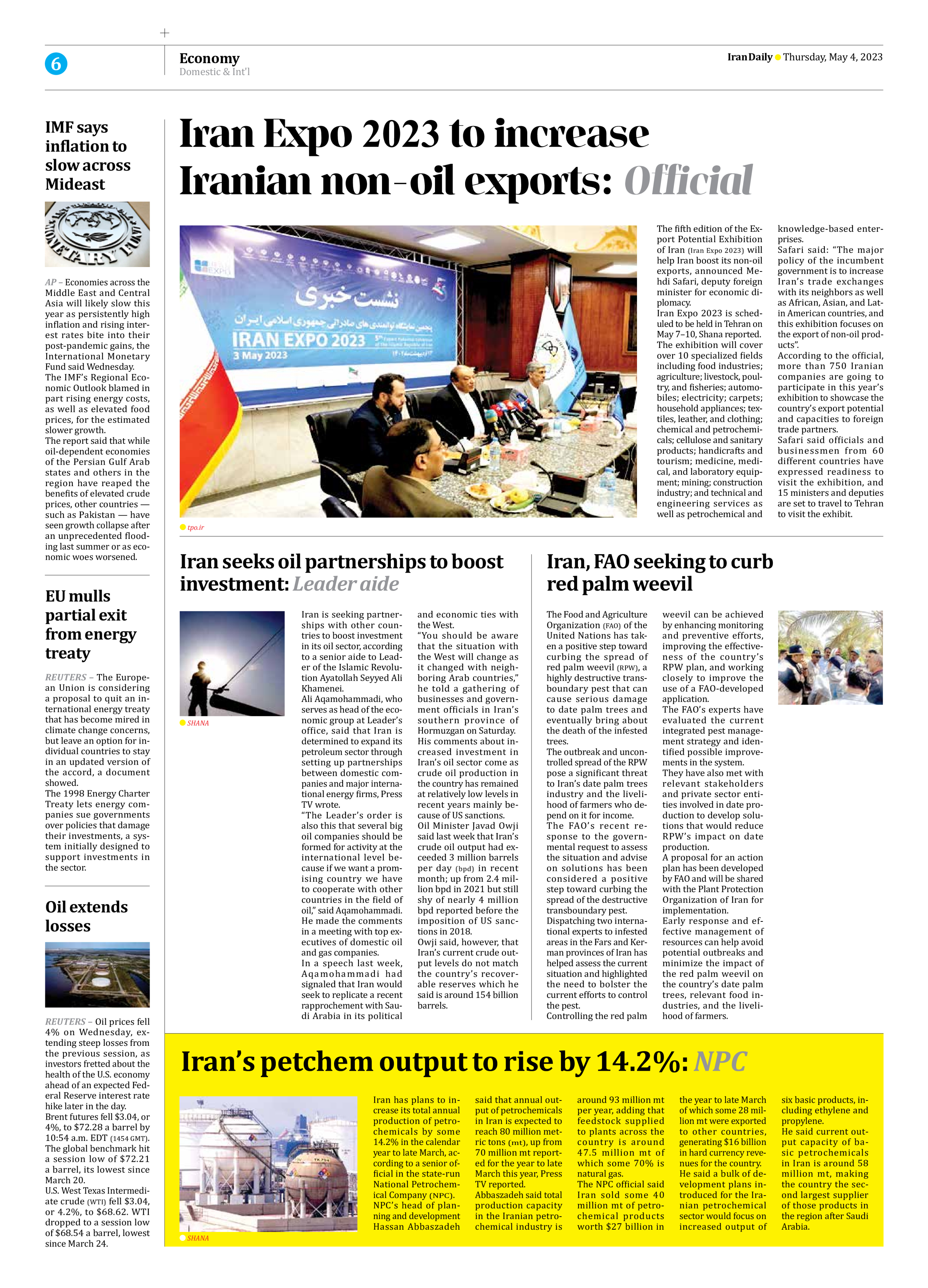
Iran, FAO seeking to curb red palm weevil
The Food and Agriculture Organization (FAO) of the United Nations has taken a positive step toward curbing the spread of red palm weevil (RPW), a highly destructive transboundary pest that can cause serious damage to date palm trees and eventually bring about the death of the infested trees.
The outbreak and uncontrolled spread of the RPW pose a significant threat to Iran’s date palm trees industry and the livelihood of farmers who depend on it for income.
The FAO’s recent response to the governmental request to assess the situation and advise on solutions has been considered a positive step toward curbing the spread of the destructive transboundary pest.
Dispatching two international experts to infested areas in the Fars and Kerman provinces of Iran has helped assess the current situation and highlighted the need to bolster the current efforts to control the pest.
Controlling the red palm weevil can be achieved by enhancing monitoring and preventive efforts, improving the effectiveness of the country’s RPW plan, and working closely to improve the use of a FAO-developed application.
The FAO’s experts have evaluated the current integrated pest management strategy and identified possible improvements in the system.
They have also met with relevant stakeholders and private sector entities involved in date production to develop solutions that would reduce RPW’s impact on date production.
A proposal for an action plan has been developed by FAO and will be shared with the Plant Protection Organization of Iran for implementation.
Early response and effective management of resources can help avoid potential outbreaks and minimize the impact of the red palm weevil on the country’s date palm trees, relevant food industries, and the livelihood of farmers.







